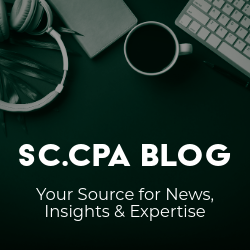By Donny Shimamoto, CPA.CITP, CGMA
Inspiration Architect, Center for Accounting Transformation
For most CPAs, those three letters after our name are more than a credential—they’re a symbol of ethics, achievement, and trust. But in some firms and states, CPAs are being asked—or even required—not to use the designation in business communications.
Why? The answer lies in a mix of outdated state rules, alternative practice structures, and private equity pressures. And the consequences affect not just CPAs, but the public’s trust in our profession.
The Pride—and Problem—of “CPA”
Many CPAs remember the excitement of first adding “CPA” to their business cards or email signatures. It was a milestone that reflected years of education, experience, and exam preparation.
But in some alternative practice structures—where firms split into licensed and unlicensed entities to allow non-CPAs to be owners—professionals working in consulting or tax are told they cannot use “CPA” at all, even if fully licensed.
Add to that a patchwork of state rules: some require CPAs to display their name exactly as listed on their license, others dictate how or when credentials may be used—and firms that operate in multiple states face additional complexity in trying to comply with all of the states’ rules. Thus, some firms are opting to tell their people to not show their CPA. This isn’t a firm issue; it is a regulatory issue.
The Trust Paradox
Regulators argue these restrictions protect the public from assuming assurance work has been performed where it hasn’t. But how much of the general public actually understands what an audit is and how audited financials are different from unaudited financials? Most users of financials statements are other business professionals who are trained to understand when they can trust financials: bankers, insurance agents, investors, etc.—not the general public.
The majority of the public views CPAs as tax preparers. Being able to show CPA on a business card or website does help the public to know that the person can be trusted to prepare their taxes. Yet licensure is primarily associated with delivering audit services. Does our current licensing model actually create trust in the right way?
Hiding the designation, some argue, undermines transparency and ethics rather than strengthening them. If no one shows their designation, how will the public know who they can trust?
Ownership and Duty to the Public
For much of the profession’s history, firms had to be 100% CPA-owned. By the 1990s, most states still required majority ownership by CPAs—rules meant to safeguard the high ethical standards of the profession.
Today, private equity investment and alternative structures are challenging that model. Firms often separate into CPA-owned audit practices and non-CPA-owned advisory or tax affiliates. While this creates opportunities for growth, it raises the question: does loosening ownership rules risk shifting the profession’s focus from public duty to investor profit?
As one CPA leader noted, “If you remove CPA ownership requirements, firms risk becoming profit-driven corporations beholden only to shareholders. The profession’s duty to the public must come first.” This duty to the public is one that no other profession upholds—even doctors and lawyers advocate for their clients first—not the general public as a whole.
Two recent Accounting ARC podcasts dive into this debate:
- Licensed But Silenced: The CPA Dilemma
- Who Owns the CPA Firm of the Future?
Industry leaders warn that loosening ownership rules risks putting profits ahead of public trust.
Protecting the Profession’s Future
The debate is about more than firm structure or compliance technicalities. It’s about whether the CPA remains the gold standard of trust—or fades into sea of other credentials.
To protect the profession, we need to:
- Revisit outdated and inconsistent state laws and regulations;
- Ensure ownership structures preserve ethics and duty to the public; and
- Show the next generation that licensure is more than just a credential—it’s a commitment to serving the public to #improvetheworld.
At its best, the CPA designation represents integrity, competence, and service to the public. Asking professionals to hide it does more harm than good. How else will the public know who they can trust?

